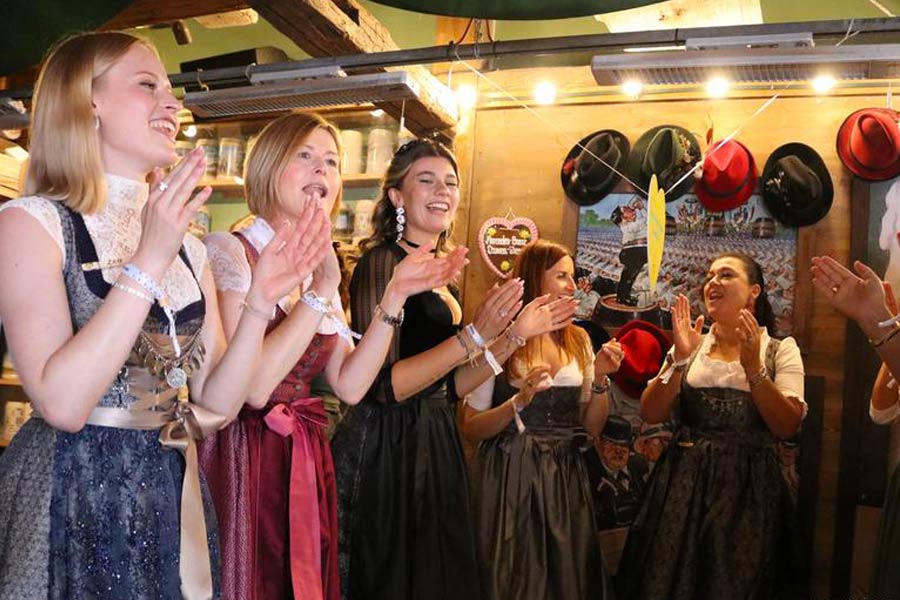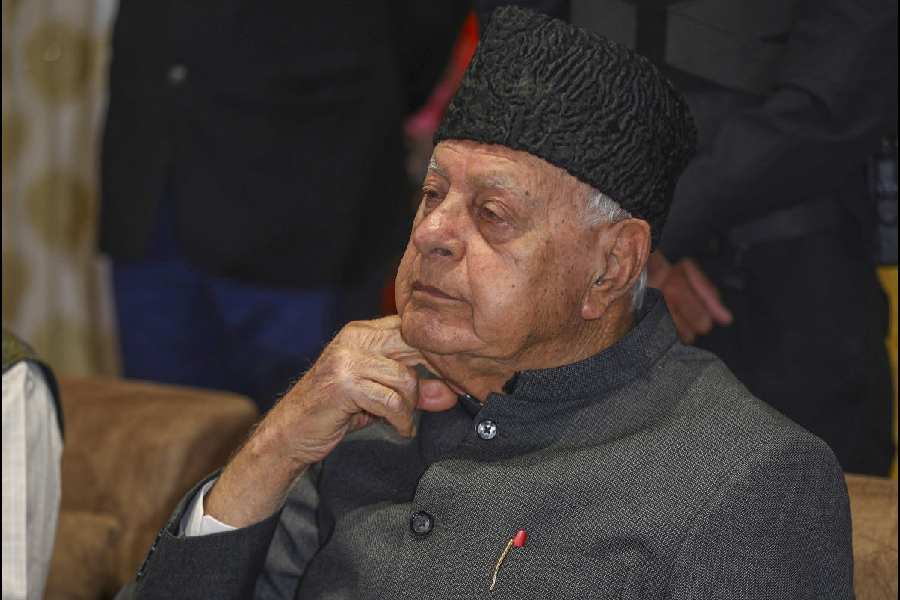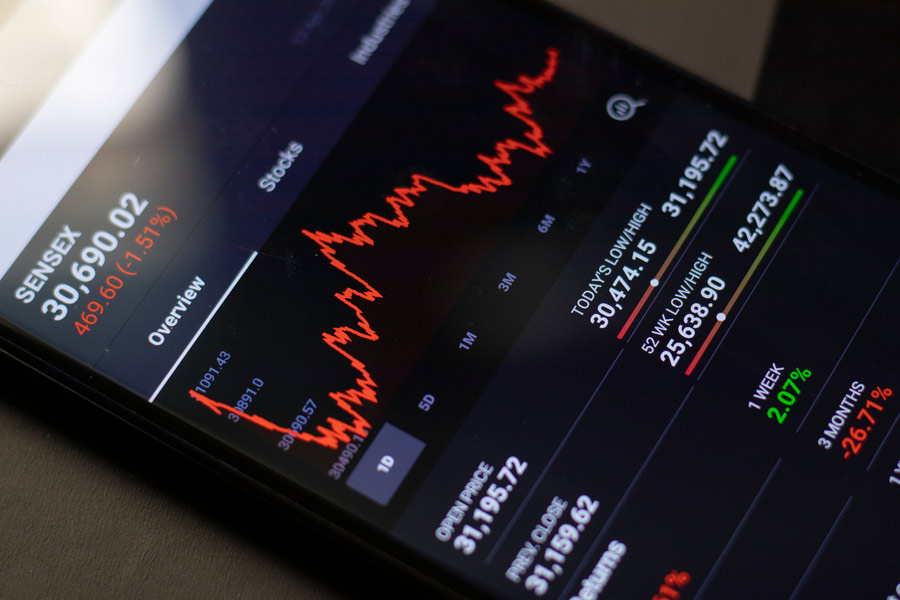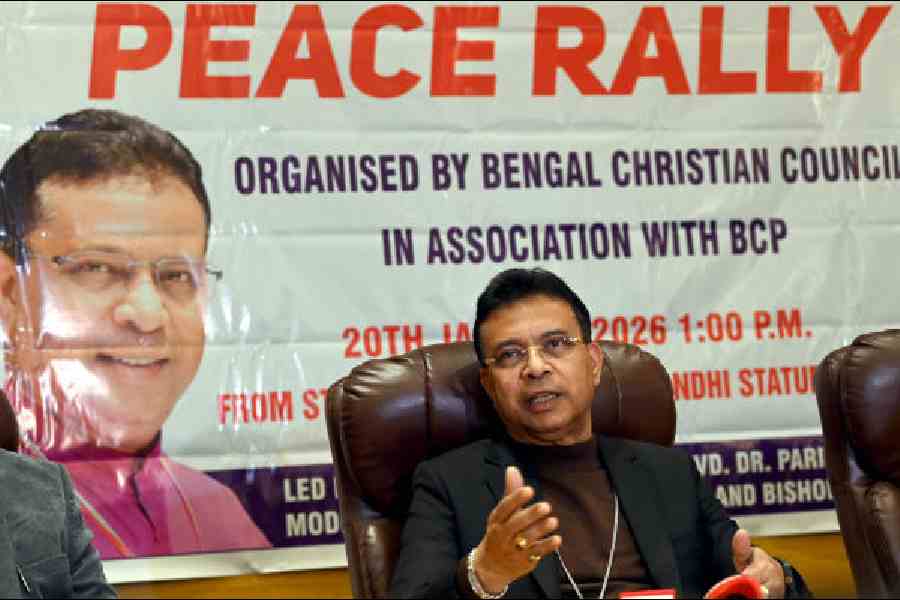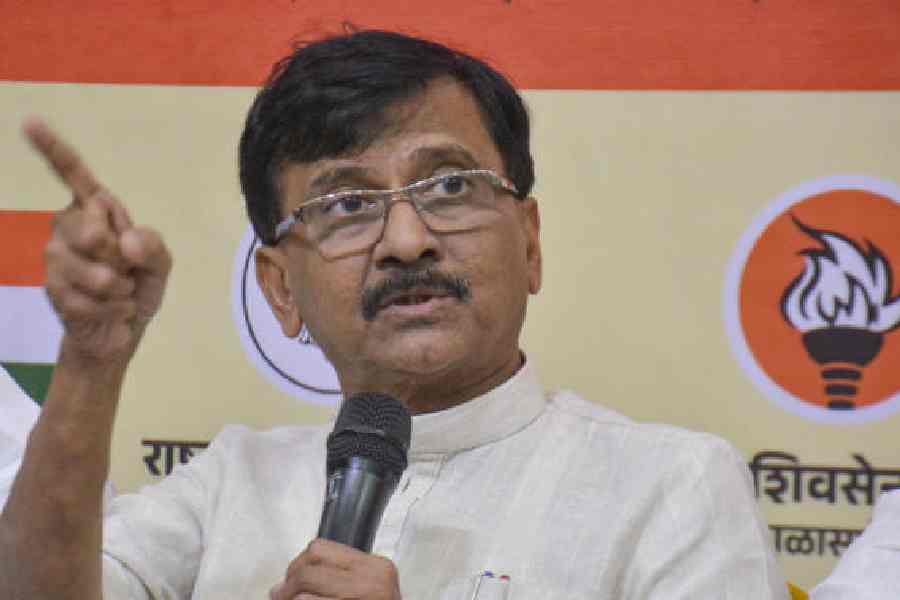Germany's famous festival, Oktoberfest, attracts plenty of dirndl- and lederhosen-wearing merrymakers to Munich, Bavaria. This year, it runs from September 16 until October 3.
Yet unpleasant incidents can occur with millions of people gathering at the Wiesn, the area in Munich where the festival takes place, and beer flowing. The "Sichere Wiesn," or "Safer Oktoberfest," campaign supported by Munich's city health department assists female visitors in cases of harassment. This year, the campaign has helped 143 women and girls who felt unsafe during the festival's first week, including seven suspected cases of drink spiking.
These women sought help at Sichere Wiesn's so-called Safe Space, located on the Oktoberfest grounds behind the Schottenhamel beer tent. It is open daily during the week.
Since 2003, the Safe Space has offered help, advice and support for girls and women who have experienced violence, sexual harassment or generally feel unsafe. Those in need can charge their phones, report sexual violence to the police and receive taxi vouchers to get home, among other services. Last year, the Safe Space staff assisted 450 girls in total during the 17 days of Oktoberfest.
An atmosphere of sexualization and revelry
"The atmosphere is really very sexualized. Many people come here to flirt, to get to know someone, and as long as it's all consensual, it's totally great," says Kristina Gottlöber, Sichere Wiesn's press contact.
However, Gottlöber also notes that the excessive alcohol consumption at Oktoberfest also allows for an atmosphere of disinhibition.
"People think Oktoberfest is a kind of morality-free zone, where you can get completely derailed," Gottlöber says. "It is also communicated to us quite often that women simply have to endure [sexual violence]. Otherwise, they shouldn't come here. That's also a bit of the mindset that some people have, and of course, that's not right."
In 2022, Oktoberfest saw 55 cases of sexual harassment, including three rapes. Notably, these numbers represent only officially reported cases, as many incidents go unreported.
Unpleasant incidents at Oktoberfest
Gottlöber highlights that the most common forms of assault include groping, unwanted kisses, and "upskirting" — capturing images or videos underneath women's clothing without consent.
She stresses the importance of planning ahead for a safe Oktoberfest experience and advocates for individuals to consider practical steps, such as carrying an external battery pack, keeping some money in your pocket outside your wallet and having emergency contact information written somewhere other than on your cellphone.
"We are, of course, absolutely of the opinion that the blame always lies with the perpetrator, but we also know that dangerous situations can arise very quickly for girls and women at the Wiesn," Gottlöber said.
Veterans of Oktoberfest often advise wearing shorts beneath Dirndls as a preventive measure. Some women have their own tips. Denise, 25, a resident of Munich, shares her perspective: "I think, as a woman, you should not drink too much. You should pay attention to your drink and other people around you. You should stay in your group with your friends."
She also suggests seeking help from security or female servers in the beer tents and avoiding interactions with drunken, rowdy men as much as possible.
Teresa Rodgers, 40, from Colorado, recommends visiting Oktoberfest in the mornings when the atmosphere is calmer and the crowds are less boisterous.
Shared responsibility for safety
Another significant campaign combating sexual violence at Oktoberfest is the "WiesnGentlemen" initiative, spearheaded by the non-profit organization Condrobs. This campaign primarily promotes respectful behavior, responsible drinking, and creating a safer festival environment, particularly for women.
Launched in 2013 under the motto "Respect is my strength," the campaign disseminates its message through social media, posters, school campaigns, and engaging with visitors en route to the festival grounds. An integral part of their efforts involves the Wiesn Courage Award, formerly known as the WiesnGentleman Award, aimed at recognizing and incentivizing respectful conduct.
The award process involves inviting individuals to share their stories of an incident where they helped to create a safer environment – for example, by helping out someone in need – or nominating someone to win the prize through the association's website. A jury carefully evaluates the submissions and selects a deserving winner who receives a voucher for an Oktoberfest outfit.
While rewarding behavior that should be considered standard may appear unconventional, Birgit Treml from Condrobs underscores the unfortunate reality that respectful conduct isn't always the norm. Moreover, it's not uncommon for bystanders to refrain from assisting those in distress. Hence, there is a need to promote and reinforce respectful behavior and helping others actively.
"Be respectful to each other," Treml says. "This applies always and everywhere in our society, but especially here at the Wiesn, where so many people come together, where a lot of alcohol flows, where it is perhaps easier for boundaries to slip. It is precisely in this context that it is important to stick to boundaries and that everyone helps together to establish them."

